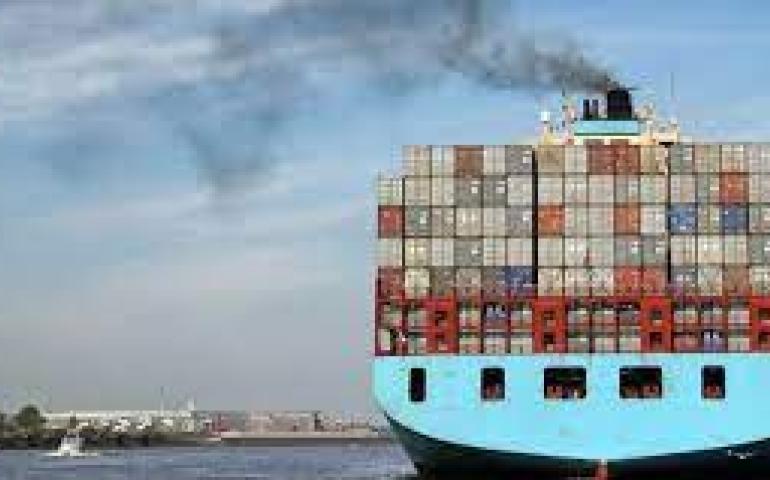The FuelEU requirements from January are already impacting parts of the sector

Non compliance will be costly to carriers when EU’S next emissions reductions rules are launched. Some carriers are already impacted, says analytics firm Siglar Carbon
An MR tanker headed from Sarroch to Rotterdam will be fined EUR 15,500 per voyage if the carrier is not in compliance with EU’s next batch of CO2 emission reductions rules, FuelEU Maritime effective from January 1 2025.
According to shipping emissions analytics company Siglar Carbon, carriers who remain unprepared for the new regime – expected to have a fundamental impact on the industry – may already have been hit.
Siglar Carbon explains that vessels on time charter into next year likely lack clauses to cover FuelEU regulations in their contracts. This implies that there is no obligation to blend any biofuel for the first half of 2025 and that the ship will accumulate a FuelEU compliance deficit.
“This issue is flying under the radar. Owners and charterers need to understand their current emissions and exposure to stay ahead of these costly decisions as it’s already adding significant cost that won’t be visible until next year,” says Siglar Carbon chief executive Sigmund Kyvik.
An aggregation of EUR 15,000 per voyage will add up to EUR 140,000 by July if appropriate clauses remain unsettled in charterparty and pooling agreements, estimates Siglar Carbon.
Industry still waiting
The pooling elements allows shipowners to balance their greenhouse gas (GHG) intensity targets across the fleet, however, each ship can only join one pool per year.
The German software company zero44 has a platform that helps shipping companies manage elements such as the EU ETS quota scheme, and here chief executive Friederike Hesse believes that the industry is still awaiting a final version of the time charter clauses for FuelEU Maritime.
”Clauses for FuelEU have largely not been agreed yet. This is true for existing time-charter contracts that run into 2025 as well as for contracts in the future, i.e. that will start in 2025,” she says:
”While a draft time-charter clause from Bimco has already been in circulation for industry feedback, a final clause has not been published yet – so many companies are still waiting for Bimco to give guidance. Others have started to draft their own clauses, but most have not had time yet to sit down with the counterparty to negotiate this.”
What a strategy should do
The process of agreeing on how to integrate FuelEU Maritime rules in contracts and operations of the ships is in itself a complex matter.
It would, according to zero44, require all parties to have a strategy in place, and many companies are still working on this.
A strategy should include:
- Compliance options under FuelEU for the specific fleet and trade routes
- Paying the penalty and forwarding the cost down the value chain
- Using biofuels to avoid the penalty (and then sharing the cost for those fuels)
- Internal/external pooling (either on the owner’s or the charterer’s side)
- Borrowing banking surpluses
- Investing in on-shore power supply or wind propulsion (something that owner and charterer can do together if the t/c is long).
”Entering a time-charter negotiation around FuelEU without this preparation is most likely careless, and this is the primary reason why these negotiations are only now being kicked off,” says Friederike Hesse and adds:
”We cannot confirm that shipping companies will be surprised by the FuelEU cost. Most companies we speak to have done calculations based on historical data and have a clear understanding of the financial risk they will be facing in 2025. But they are still busy developing their FuelEU strategy.”
The FuelEU Maritime Regulation, effective January 1, 2025, mandates that commercial vessels over 5,000 gross tons calling at EU ports comply with strict GHG intensity limits, including CO2, methane, and nitrous oxide emissions.
Ships must also use onshore power supply (OPS) or alternative zero-emission technologies at berth to reduce port air pollution.
In a comment to ShippingWatch, Nina Porst, director of climate, environment, and security at Danish Shipping, says that:
“We assist our members in their preparations for the entry into force of this new regulation in various ways. While we can’t comment on the readiness of the whole sector, our impression is that our members are well prepared. As with any new regulation that comes into effect, we will have to wait and see if there are any unforeseen kinks in the system that need to be ironed out. But as for now, we are quite optimistic on behalf of our members’ preparedness.”










